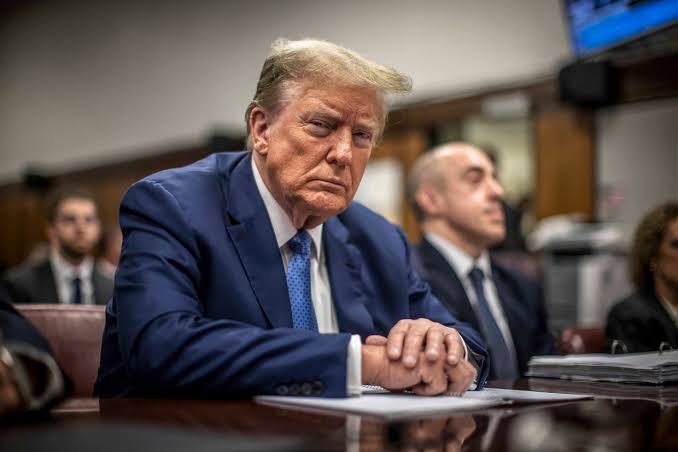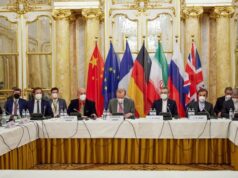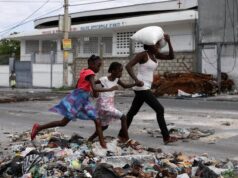Manhattan DA and Judge adamant on Trump’s verdict

The ongoing legal battle between Manhattan District Attorney Alvin Bragg, Judge Juan Merchan, and President-elect Donald Trump has reached a critical juncture.
On January 6, Trump’s legal team filed a two-fold motion to delay the January 10 sentencing hearing, arguing that the proceedings violate the doctrine of presidential immunity.
This legal doctrine has been reinforced by the US Supreme Court’s recent decision, which bolsters Trump’s claim that no further legal action should proceed until the appellate courts resolve the matter.
Despite these arguments, Judge Merchan swiftly denied Trump’s request for a stay, further intensifying the legal and political clash.
The charges against Trump stem from a 38-count indictment issued by a grand jury, primarily focused on payments made to Stormy Daniels.
Trump’s legal team initially filed a Motion to Vacate the Jury Verdict and a Motion to Dismiss the indictment, arguing that these charges were inherently flawed and unconstitutional.
However, Judge Merchan rejected these motions in an 18 page opinion, declaring that the evidence and arguments presented by the Manhattan DA’s office were sufficient to proceed.
Trump’s legal strategy hinges on the principle of presidential immunity, which has long shielded sitting and former presidents from prosecution for official acts performed during their tenure.
The Supreme Court’s recent ruling on this matter has strengthened Trump’s legal argument, suggesting that any proceedings based on actions tied to his presidency are impermissible.
In his two-fold motion filed on January 6, Trump’s legal team requested a stay of the sentencing hearing, arguing first that the proceedings must be automatically halted under federal law due to the pending appeal concerning presidential immunity.
Secondly, they asserted that even if federal law did not mandate a stay, New York state law provided sufficient grounds to pause the proceedings.
Judge Merchan’s response was swift and dismissive. In a two-page order issued the same day, Merchan denied the motion, stating that Trump’s arguments were repetitive and lacked merit.
He further asserted that the legal precedents cited by Trump’s team were either distinguishable from the present case or inapplicable altogether. DA Alvin Bragg’s office had also opposed the stay, reinforcing the judge’s decision to proceed.
Despite this setback, Trump’s legal team is expected to seek a stay from the New York appellate court. In their upcoming motion, they will likely reiterate the arguments laid out in their Article 78 petition, which challenges the authority of both DA Bragg and Judge Merchan to maintain the criminal proceedings.
Under New York law, the Article 78 petition allows individuals to contest the actions of a prosecutor or judge before a case reaches its conclusion.
Trump’s petition argues that DA Bragg’s prosecution and Judge Merchan’s continuation of the trial violate Supreme Court precedent on presidential immunity.
The petition highlights instances where the Manhattan DA presented evidence to the grand jury and trial jury concerning Trump’s official actions as president-actions that should be immune from legal scrutiny.
Trump’s attorneys further contend that his current duties as president-elect fall under the umbrella of presidential responsibilities.
They argue that forcing Trump to attend a sentencing hearing interferes with his ability to perform these duties, thereby exceeding the court’s jurisdiction and undermining constitutional principles.
The Supreme Court’s decision on presidential immunity provides a robust foundation for Trump’s defense. This ruling emphasizes that actions taken by a sitting president in the course of official duties are immune from judicial or prosecutorial scrutiny.
Trump’s legal team argues that DA Bragg’s indictment and subsequent trial proceedings violated this principle by using evidence related to Trump’s presidential actions.
The appellate court will need to consider whether the Manhattan DA’s case oversteps the boundaries of presidential immunity.
Legal experts anticipate that the court will scrutinize the relevance of the Supreme Court’s precedent and the extent to which it applies to Trump’s case.
The implications of this decision could reverberate far beyond this trial, setting a significant precedent for future legal battles involving former presidents.
The legal showdown between Trump and the Manhattan DA’s office has significant political implications. Trump’s supporters argue that these proceedings represent a politically motivated attack aimed at undermining his presidency and tarnishing his legacy.
They contend that DA Bragg and Judge Merchan’s actions amount to an abuse of power, designed to weaponize the judicial system against a political opponent.
On the other hand, Trump’s critics view the trial as a necessary step in holding him accountable for alleged wrongdoing. They argue that no individual, including a former president, should be above the law.
The outcome of this case could further polarize the American political landscape, intensifying the already fierce divide between Trump’s supporters and opponents.
As Trump’s legal team prepares to escalate their battle to the New York appellate court, the stakes could not be higher. Legally, the case presents a critical test of the limits of presidential immunity and the balance of power between the judiciary and the executive branch.
Politically, the trial could shape public perceptions of Trump as he prepares to take the oath of office once again.
A stay from the appellate court would provide temporary relief for Trump and delay the sentencing hearing. Such a decision would also signal the court’s recognition of the complex legal and constitutional questions at play.
However, if the appellate court denies the stay, Trump’s legal team will likely escalate the matter to the state’s highest court or even seek federal intervention.
The legal proceedings against Donald Trump in Manhattan have become a focal point of national attention, raising profound questions about the intersection of law, politics, and the presidency.
As the January 10 sentencing date looms, the battle over presidential immunity and judicial overreach continues to unfold.
The appellate court’s decision in the coming days will not only determine the immediate future of this case but could also leave an indelible mark on the American legal and political landscape.




